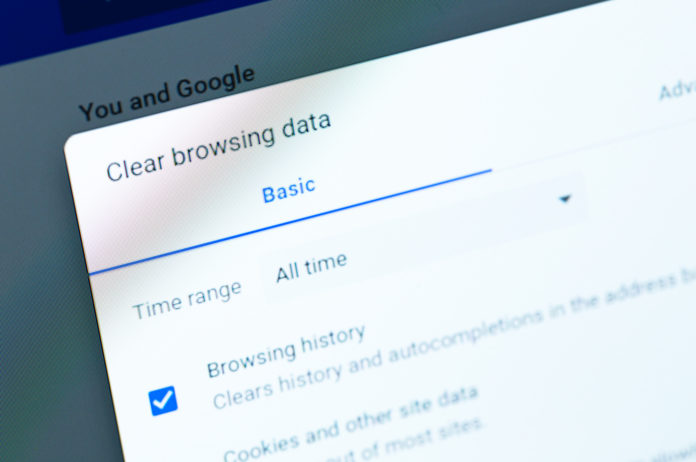Tired of ads following you around the internet? The remarketing ad is noteworthy as a sign of customer tracking in the online advertising world. But, the famous cookie goes beyond simple remarketing ads. Cookies tag your browser and tracks consumer behavior around the web. And, the Google cookie remains powerful because essentially all consumer behaviour enters the Google ecosystem. However, in March 2021, Google announced plans it will phase out third party cookies on desktop search activity.
What are cookies?
Cookies place snippets of code that form the DNA tracking consumer behaviour around the internet. The ability of tracking behavior catapulted platforms such as Google and Facebook to grow to such large heights. For example, Google is able to track consumers and sell that information to advertisers so they can target their ads to the most applicable customer. Additionally, other tracking companies leverage Google to create third-party data. It is this segment of cookies that will be disbanded.
For more, Morning Brew notes that you will still see targeted ads with their new solution, the Privacy Sandbox.
“Currently, using cookies, Google can see that a user was shopping for a new golf bag on Amazon, then later serve them a Callaway ad next to a Golf.com article. This online Sherlock Holmes-ing is the reason why it can feel like a product is following you around the internet. Now, through a program called “Privacy Sandbox,” Google is testing a way for companies to target ads to groups of users with similar interests instead of directly to individuals. That way, businesses can still serve targeted ads, but your specific user data is a little more private since Google is essentially hiding it in a crowd.”
What to know about the Google cookie change?
First and foremost, the announcement does not change a fair amount of important attributes of the online advertising world. To start, third party cookies will remain effective and active on mobile searches. As mobile searches continue to outpace desktop searches, then marketers can rest assured that their current mobile cookies will continue to identify relevant customers. According to industry experts, roughly 65% of ad spend was mobile ad spending, so all of this spend (and presumably campaign performance) is not impacted. Additionally, first party Google cookies also remain. Essentially, the extent of the announcement sounds alarming, but the real impact depends on your advertising activities and first data tracking capabilities.
For example, Google owns a lot of high volume properties. As a result, companies can continue to target customers based on making searches on Google or even watching a video on YouTube. Additionally, companies can still cookie consumers that visit their site (so those remarketing ads are still in play). This is all first party data and is not impacted by the announcement. The tech analyst Benedict Evans notes the importance of driving first party data to avoid drops in paid search activities.
“If you can only target based on first-party data, then the people with the most first-party data do best.”
How does the Google announcement impact the marketing and tech industry?
Google has always been the 800 pound gorilla in the digital marketing world. The move to phase out third party cookies does not change that status. In fact, the Wall Street Journal notes that their size allows them to make swift changes.
“Google’s heft means the change could reshape the digital ad business, where many companies rely on tracking individuals to target their ads, measure the ads’ effectiveness and stop fraud. Google accounted for 52% of last year’s global digital ad spending of $292 billion, according to Jounce Media, a digital ad consultancy.”
Additionally, Google controls the pipes within the industry. Roughly 40% of spend from advertisers to publishers move through the Google ecosystem. As a result, Google not only commands the attention of advertisers, but also regulators that see the money and importantly data that also flows through these same pipes.
For example, Axios discusses the change in conjunction with pending regulatory concern over consumer data, along with consumers concern over their data as well.
“The move comes amid increased scrutiny over the way tech giants use consumer data to reinforce their dominance, particularly around personalized advertising…Google isn’t making these adjustments solely in response to regulatory pressure, but also to reduce consumer discomfort.”
Ultimately, Google seemingly made the announcement for business reasons. First, the rise of private browsing and increasing consumer usage of Safari and Firefox slowly eats into tracking activities. Second, the rise of consumer tracking has gained the ear of regulators that are now taking aim at “big tech.” And finally, consumers themselves are growing weary of “being the product” so Google risks losing some portion of consumers. All of this adds up to a calculated decision to stop third party tracking, yet continue the flow of ad dollars through the Google pipes. Only time will tell if the privacy sandbox works to satisfy regulatory demands and balance consumer privacy with advertisers desire to target potential customers.





